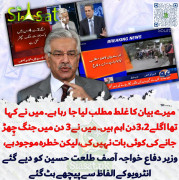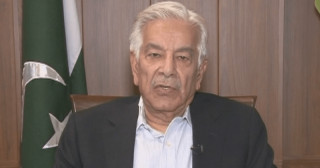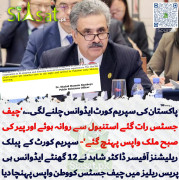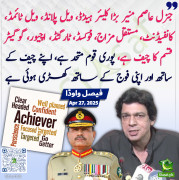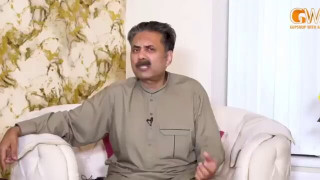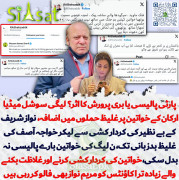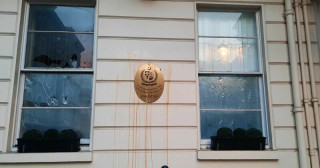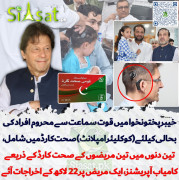[h=2]Nawaz Sharif Corruption exposed by R.Baker.I challenge Noora,s ,come and deny it[/h]Nawaz Sharif. While Benazir Bhutto hated the generals for executing her<br>
father, Nawaz Sharif early on figured out that they held the real power in<br>
Pakistan. His father had established a foundry in 1939 and, together with<br>
six brothers, had struggled for years only to see their business nationalized<br>
by Ali Bhuttos regime in 1972. This sealed decades of enmity between the<br>
Bhuttos and the Sharifs. Following the military coup and General Zias assumption<br>
of power, the businessIttefaqwas returned to family hands in<br>
1980. Nawaz Sharif became a director and cultivated relations with senior<br>
military officers. This led to his appointment as finance minister of Punjab<br>
and then election as chief minister of this most populous province in 1985.<br>
During the 1980s and early 1990s, given Sharif s political control of<br>
Punjab and eventual prime ministership of the country, Ittefaq Industries<br>
grew from its original single foundry into 30 businesses producing steel,<br>
sugar, paper, and textiles, with combined revenues of $400 million, making<br>
it one of the biggest private conglomerates in the nation. As in many other<br>
countries, when you control the political realm, you can get anything you<br>
want in the economic realm.<br>
With Lahore, the capital of Punjab, serving as the seat of the familys<br>
82 CAPI TA L I S M S AC H I L L E S H E E L<br>
power, one of the first things Sharif did upon becoming prime minister in<br>
1990 was build his long-dreamed-of superhighway from there to the capital,<br>
Islamabad. Estimated to cost 8.5 billion rupees, the project went through<br>
two biddings. Daewoo of Korea, strengthening its proposals with midnight<br>
meetings, was the highest bidder both times, so obviously it won the contract<br>
and delivered the job at well over 20 billion rupees.<br>
A new highway needs new cars. Sharif authorized importation of 50,000<br>
vehicles duty free, reportedly costing the government $700 million in lost<br>
customs duties. Banks were forced to make loans for vehicle purchases to<br>
would-be taxi cab drivers upon receipt of a 10 percent deposit. Borrowers got<br>
their Nawaz Sharif cabs, and some 60 percent of them promptly defaulted.<br>
This left the banks with $500 million or so in unpaid loans. Vehicle dealers<br>
reportedly made a killing and expressed their appreciation in expected ways.<br>
Under Sharif, unpaid bank loans and massive tax evasion remained the<br>
favorite ways to get rich. Upon his loss of power the usurping government<br>
published a list of 322 of the largest loan defaulters, representing almost $3<br>
billion out of $4 billion owed to banks. Sharif and his family were tagged for<br>
$60 million. The Ittefaq Group went bankrupt in 1993 when Sharif lost his<br>
premiership the first time. By then only three units in the group were operational,<br>
and loan defaults of the remaining companies totaled some 5.7 billion<br>
rupees, more than $100 million.67<br>
Like Bhutto, offshore companies have been linked to Sharif, three in the<br>
British Virgin Islands by the names of Nescoll, Nielson, and Shamrock68 and<br>
another in the Channel Islands known as Chandron Jersey Pvt. Ltd.69 Some<br>
of these entities allegedly were used to facilitate purchase of four rather<br>
grand flats on Park Lane in London, at various times occupied by Sharif<br>
family members. Reportedly, payment transfers were made to Banque<br>
Paribas en Suisse, which then instructed Sharif s offshore companies Nescoll<br>
and Nielson to purchase the four luxury suites.70<br>
In her second term, Benazir Bhutto had Pakistans Federal Investigating<br>
Agency begin a probe into the financial affairs of Nawaz Sharif and his family.<br>
The probe was headed by Rehman Malik, deputy director general of the<br>
agency. Malik had fortified his reputation earlier by aiding in the arrest of<br>
Ramzi Yousef, mastermind of the 1993 World Trade Center bombing. During<br>
Sharif s second term, the draft report of the investigation was suppressed,<br>
Malik was jailed for a year, and later reportedly survived an<br>
Dirty Money at Work 83<br>
assassination attempt, after which he fled to London. The Malik report, five<br>
years in the making, was released in 1998, with explosive revelations:<br>
The records, including government documents, signed affidavits from<br>
Pakistani officials, bank files and property records, detail deals that Mr.<br>
Malik says benefited Mr. Sharif, his family and his political associates:<br>
At least $160 million pocketed from a contract to build a highway<br>
from Lahore, his home town, to Islamabad, the nations capital.<br>
At least $140 million in unsecured loans from Pakistans state banks.<br>
More than $60 million generated from government rebates on<br>
sugar exported by mills controlled by Mr. Sharif and his business<br>
associates.<br>
At least $58 million skimmed from inflated prices paid for imported<br>
wheat from the United States and Canada. In the wheat<br>
deal, Mr. Sharif s government paid prices far above market value<br>
to a private company owned by a close associate of his in Washington,<br>
the records show. Falsely inflated invoices for the wheat generated<br>
tens of millions of dollars in cash.71<br>
The report went on to state that The extent and magnitude of this corruption<br>
is so staggering that it has put the very integrity of the country at<br>
stake.72 In an interview, Malik added: No other leader of Pakistan has<br>
taken that much money from the banks. There is no rule of law in Pakistan.<br>
It doesnt exist.73<br>
What brought Sharif down in his second term was his attempt to acquire<br>
virtually dictatorial powers. In 1997 he rammed a bill through his<br>
compliant parliament requiring legislators to vote as their party leaders directed.<br>
In 1998 he introduced a bill to impose Sharia law (Muslim religious<br>
law) across Pakistan, with himself empowered to issue unilateral directives in<br>
the name of Islam. In 1999 he sought to sideline the army by replacing<br>
Chief of Staff Pervez Musharraf with a more pliable crony. He forgot the<br>
lessons he had learned in the 1980s: The army controls Pakistan and politicians<br>
are a nuisance. As Musharraf was returning from Sri Lanka, Sharif<br>
tried to sack him in midair and deny the Pakistan International Airways<br>
flight with 200 civilians on board landing rights in Karachi. Musharraf radioed<br>
from the aircraft through Dubai to his commander in Karachi, order-<br>
84 CAPI TA L I S M S AC H I L L E S H E E L<br>
ing him to seize the airport control tower, accomplished as the plane descended<br>
almost out of fuel. Musharraf turned the tables and completed his<br>
coup, and Sharif was jailed.<br>
But Sharif had little to fear. This, after all, is Pakistan. Musharraf needed<br>
to consolidate his power with the generals, and Sharif knew details about the<br>
corruption of most of the brass. Obviously, it is better to tread lightly<br>
around the edges of your peer groups own thievery. So Musharraf had Sharif<br>
probed, tried, convicted, and sentenced to life in prison, but then in 2000<br>
exiled him to Saudi Arabia. Twenty-two containers of carpets and furniture<br>
followed, and, of course, his foreign accounts remained mostly intact. Ensconced<br>
in a glittering palace in Jeddah, he is described as looking corpulent<br>
amidst opulent surroundings.74 Reportedly, he and Benazir Bhutto<br>
even have an occasional telephone conversation, perhaps together lamenting




 Edit Post
Edit Post
